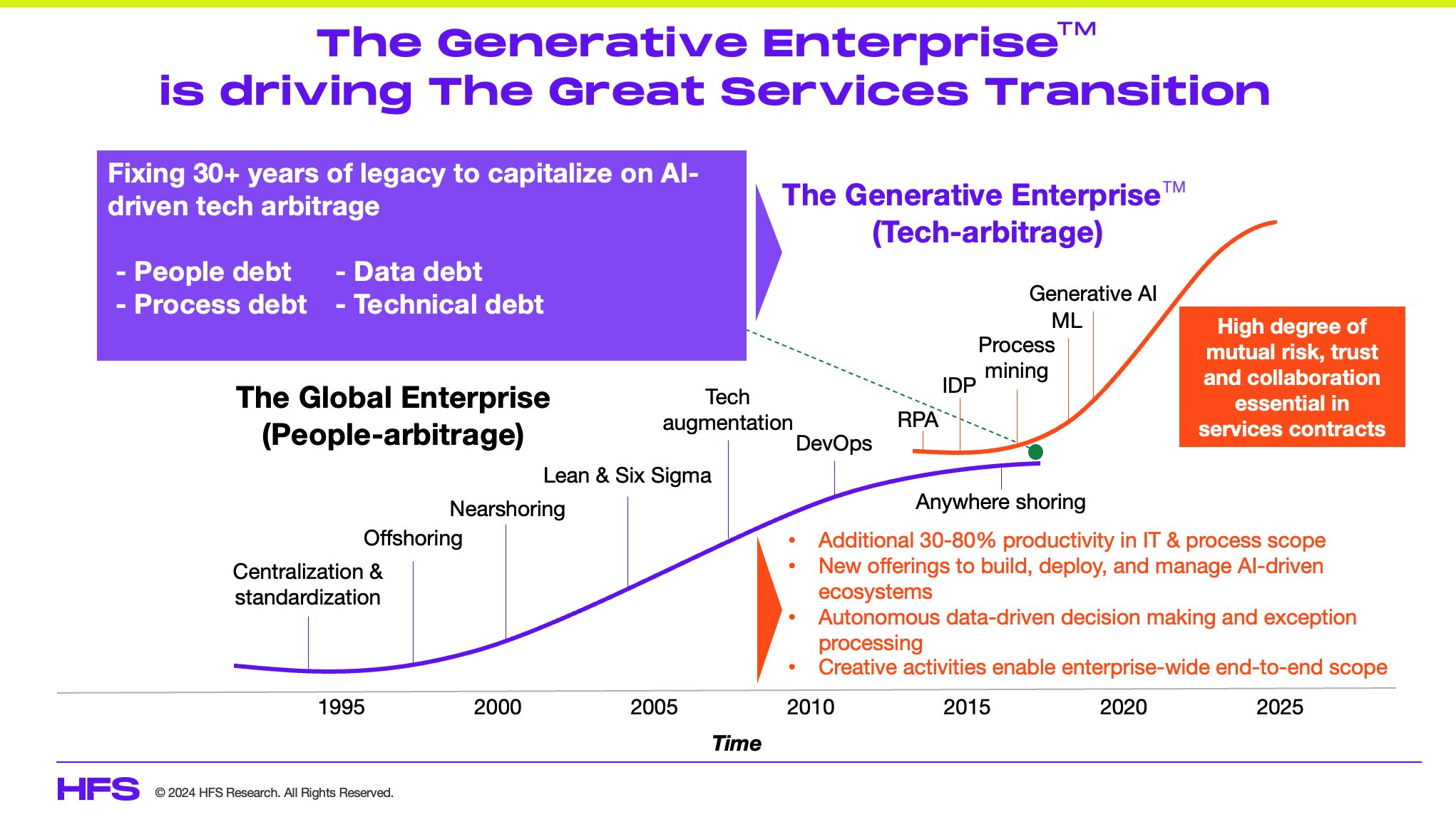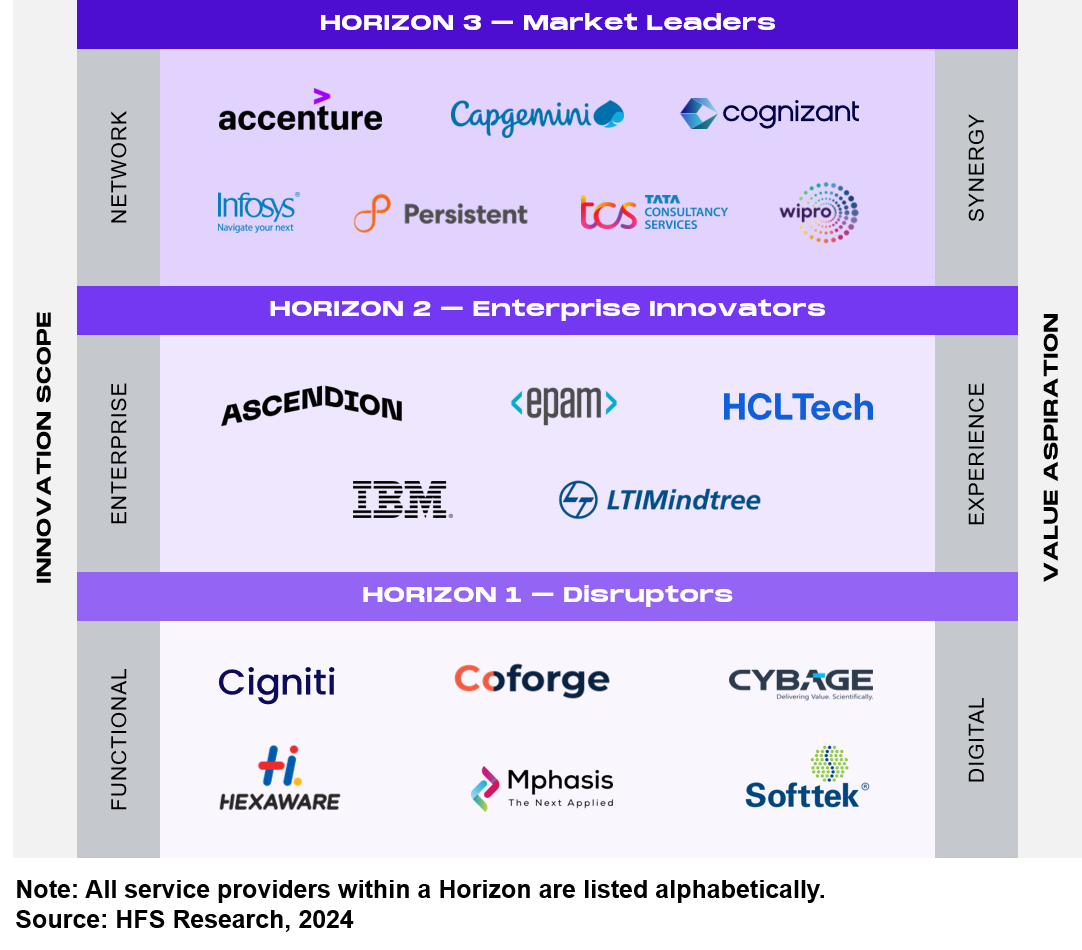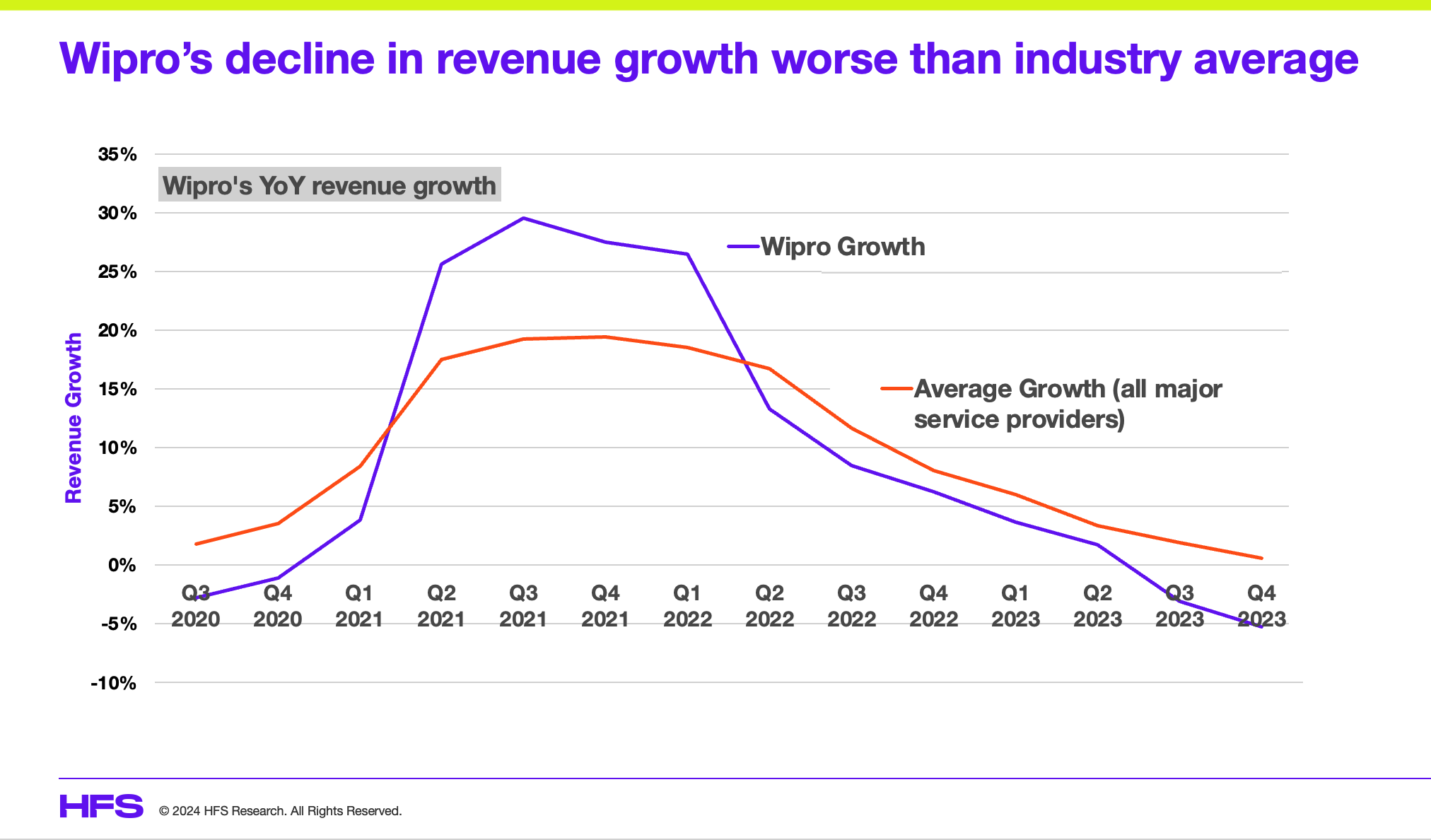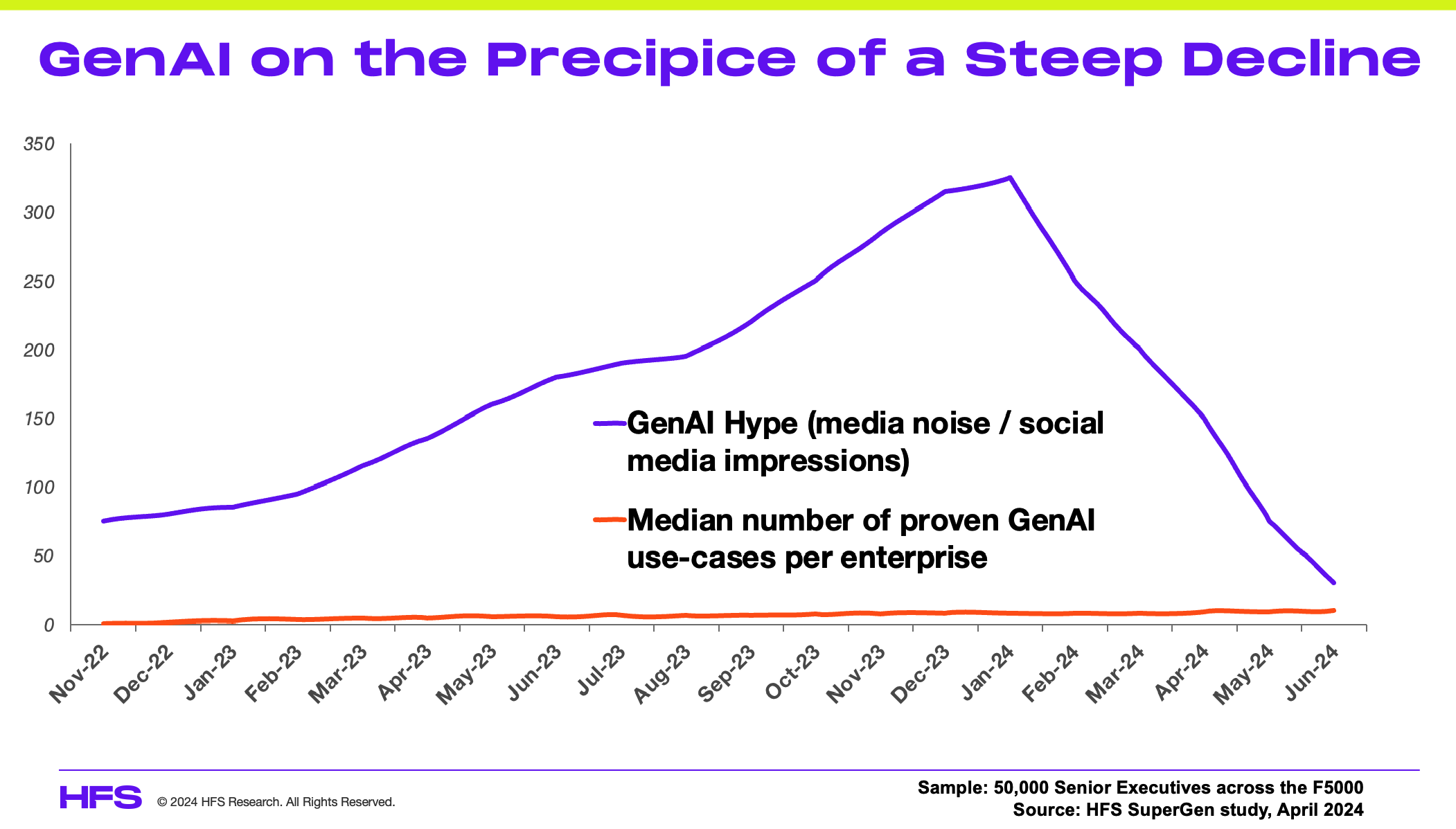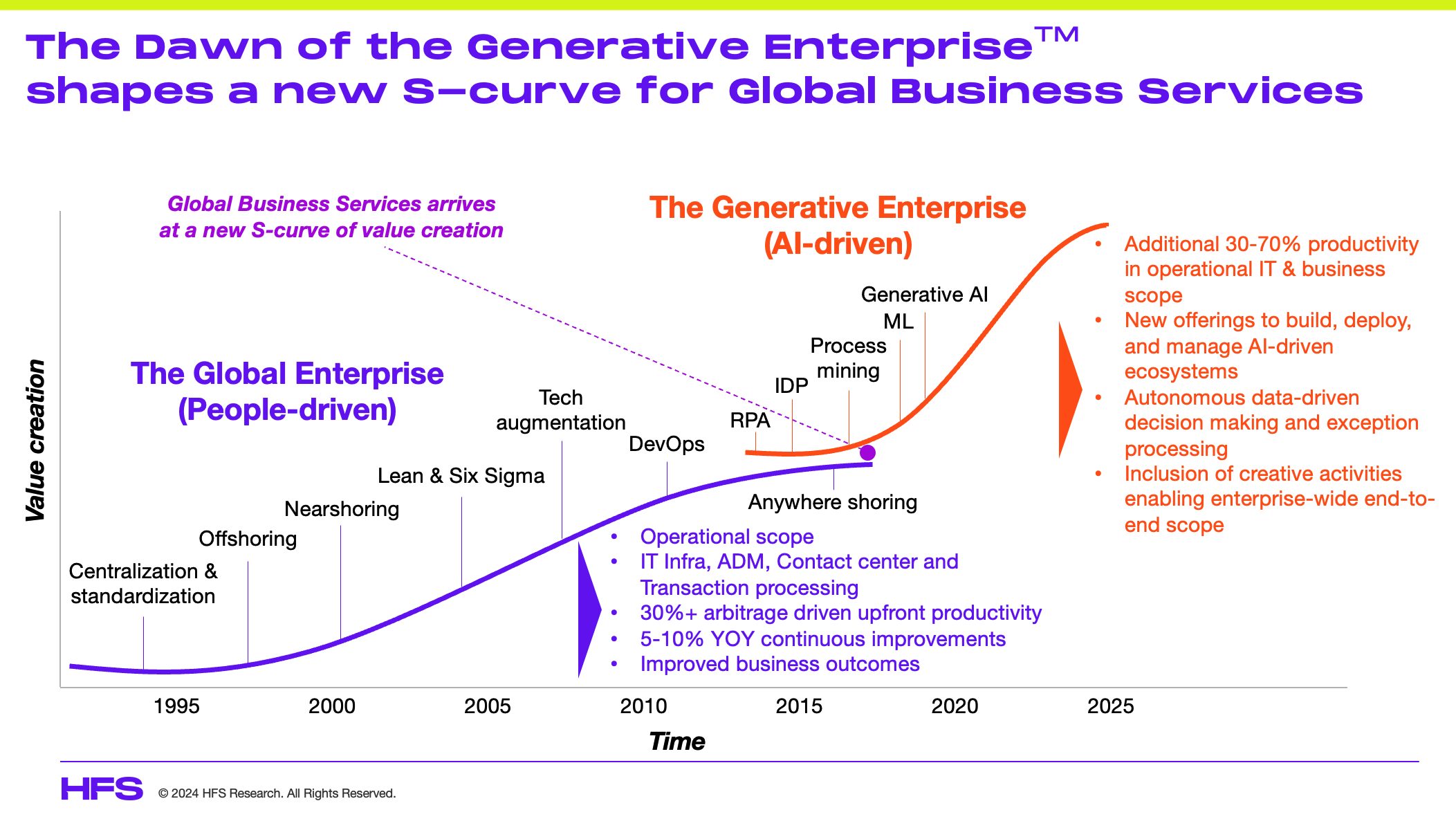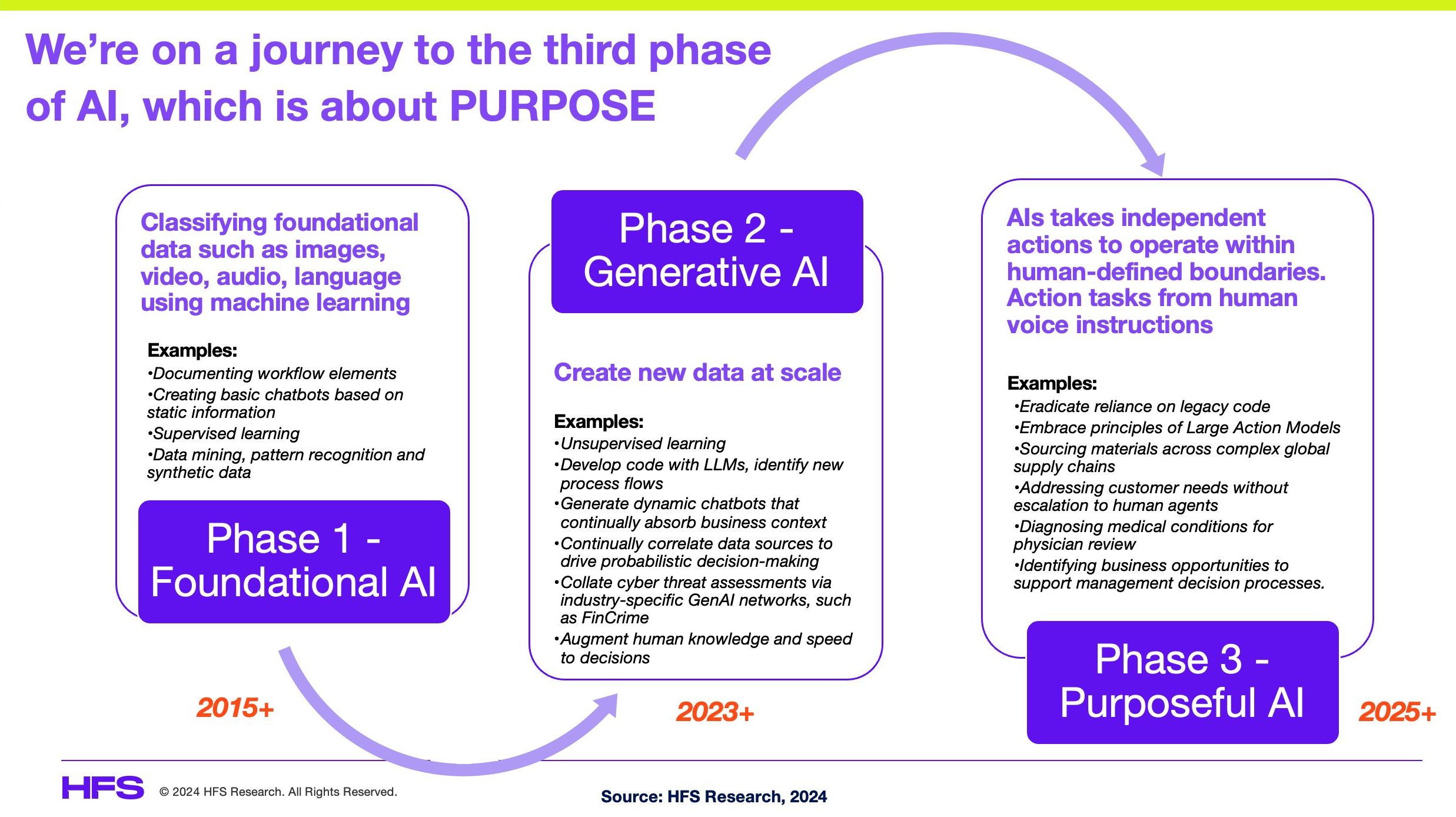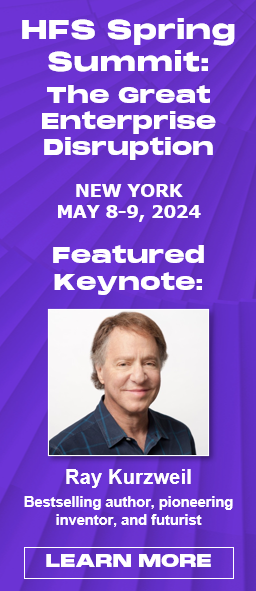The IT and business services world has entered a crucial phase where the winners and losers will become clear in...Read More
To assure the journey toward the Generative Enterprise™, organizations must show humility for the unknown
Quality assurance (QA), or simply “testing,” as it was called in the old days, can no longer be a reactive afterthought coupled with an unwillingness to invest in quality. Instead, it must become an integral part of the software development lifecycle (SDLC) and take on a much more holistic responsibility for assuring transformational outcomes.Read More
Thierry was good in Theory but perhaps not as Palliatable as Pallia
After the failed experiment to make Wipro like a Big 4/Accenture-like firm, Wipro is going back to its Indian-centric 80-year heritage to deliver cost-efficiency, but with capabilities to support transformations, Cloud and GenAI. However, the firm has to play catch-up during the toughest time facing Indian-heritage outsourcing, and Pallia needs to weather more challenging quarters, impatient shareholders, and unrealistic expectations. Thierry hasn't left a great legacy to build on...Read More
GenAI will crash and burn
We’re sad to inform you all that the GenAI we have grown to love with such intensity will shortly crash and burn. We’ve been here before, folks, when we called the death of RPA five years ago… and we are today calling the death of GenAIRead More
Anatomy of a flail. Wipro’s acquisition of Capco three years in…
As we examine what Wipro has achieved in the three years since the acquisition, we regretfully opine that things have not gone well. There has been limited exponential impact from combining the two entities and 'strategy-led execution deals' have not materialized.Read More
GBS (Global Business Services) is dead. Long live GBS (Generative Business Services)
For more than two decades, Global Business Services (GBS), the centralized service delivery model leveraging a mix of internal shared services and/or 3rd party outsourcing, has been a tried and tested modus operandi for large enterprises to save costs, drive process discipline and improve compliance.However, with the rapid advent of real generative AI capability, the current GBS model is dated, fails to deliver much (if any) value beyond cost and efficiency and has struggled to create viable career opportunities for ambitious talent. Let’s face it, GBS is still stuck squarely in the back office and fails to provide a career track for the best and brightest to pivot their firms into the generative AI era.Read More
Why actions will eat code
After a remarkable journey through the era of computerization and its remarkable contributions, we stand at a pivotal moment of innovation. It's time to bid farewell to a core element that has been instrumental in its success: We must undertake a comprehensive reevaluation of our enterprise application suites and the ecosystem of coding that has been central to their development and support. Our future is all about visible actions and invisible technology...Read More
We’re entering the Third Phase of AI: Purposeful AI
Welcome to the Purposeful AI where humans set the goals and the boundaries, and your AI is empowered to deliver on the actions. This 'Third Phase of AI' follows from Foundational AI and Generative AI and is designed to make independent decisions – acting with autonomy within human-defined boundaries. Purposeful AI goes beyond a one-time-only assembly of rules of engagement. It will learn from its interactions and from prompts provided by humans to constantly improve its capabilities to action their desired outcomes in real-timeRead More
India’s bloated IT services firms must learn from their startups to avoid GenAI meltdown
Having just spent a lovely week in India leading an HFS special event in Mumbai, followed by speaking at the Nasscom Technology Leadership Forum, I was overwhelmed with concern that so many leaders in India's services industry really have no concept of what is going to hit them. Indian support services could lose a million positions over the next couple of years as LLMs rapidly change how routine IT testing and coding work are delivered.Read More
Can we reenergize the transactional workforce?
Why do so many employers feel shortchanged on performance and blame the remote work environment? If their firms are failing and the remote environment is not improving performance, it really sounds like both leadership is failing to lead, and many employees are not performing either. Leaders need to trust their people and do all they can to get their staff to engage and collaborate, but staff also need to recognize this and motivate themselves to step it up and be engaging workers. Read More



